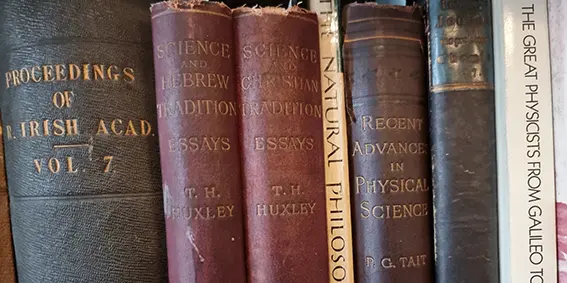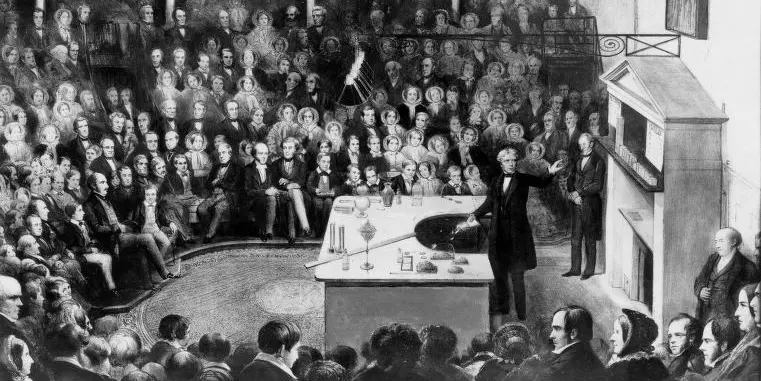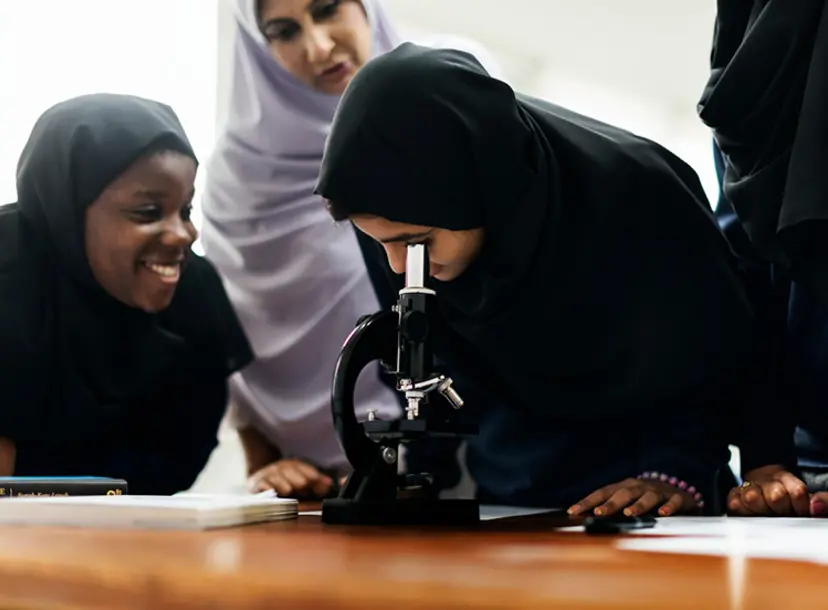It’s been a delight to hear such positive comments about the recent launch of our new five-year strategy. In developing our strategy, we have done considerable work to understand our strengths and opportunities – as well as how we need to evolve, grow and change in the future. Our new strategy is clear on the importance of science to modern society, and our belief that there should be equitable access to science.
We recognise that our commitment to ‘equitable access’ goes beyond giving everyone identical opportunities; some people need more resources or support than others, especially people from marginalised groups, in order to feel welcome in science.
Part of the Ri’s distinctive approach is about enabling direct access to real scientists – and so we strive to showcase scientists from a wide range of backgrounds, especially backgrounds that are currently under-represented in science.

And we know that representation really matters – for example, Binyam Mogessie paints a vivid picture of how changes in representation had dramatic effects on his sense of belonging in science throughout his journey to becoming a professional researcher. A recent survey from the International Journal of Science Education found that showed that 56% of STEM professionals from minoritized backgrounds believed that media exposure to gender – and ethnicity-matched STEM professionals would be effective encouragement to pursue STEM.
As the UK House of Commons Science & Technology Committee has said:
“It’s not just good for business, it is fundamentally about being fair and doing the right thing. The education and research sectors must…take a systemic approach to the challenge, making the STEM [Science, Technology, Engineering, Maths] ecosystem in the UK a beacon of good practice when it comes to addressing under-representation”..
We are privileged and excited to be hosting the Muslim Tech Fest this weekend, a vibrant community of scientists who are keen to share their passion for science with other people who are interested in science – just like all the scientists who feature in our programmes. Like each of us, these scientists have multiple identities, as members of their family, their neighbourhood, their university, etc. They also share a common thread in their Islamic faith.
Most people are as excited as we are, and the Festival is now sold out! But sadly, there have been many attempts to post unpleasant and discriminatory comments about Islam on our social media posts about this event and a couple of other recent events.
Muslim scientists are not a ‘modern invention’ of course. Scientists from Muslim civilizations and communities have been active researchers for centuries, including in chemistry, optics, mathematics, astronomy and every other field. Likewise science and religion have co-existed – and often co-operated – for centuries. Like most of his peers, one of the Ri’s most famous scientists, Michael Faraday, was a devout Christian. Even modern attitudes to science and religion are rarely as conflicted as some of the recent messages we received criticising these Muslim events have implied – which I discussed on Christian podcast Premier last year.

What’s key for us is being able to share the Ri’s unique and privileged space and history with as many people as possible. In a city in which an estimated 15% of the population is Muslim, hosting a couple of events that showcase Muslim scientists doesn’t feel much like an over-reaction. And if it’s ‘woke’ to be making an effort to include people, then perhaps the Ri has always been woke, giving important roles to people from low-income backgrounds (including Faraday himself) since being founded in 1799 and being one of the first institutions in London to allow women to attend science talks.
The people in our audiences are – and always have been - different from one other. They have different favourite topics, they prefer different event styles, they have different views on a whole range of issues. We don’t expect them to always agree.
But we do expect them to show respect for each other. We will not tolerate abuse or harassment in our Theatre, nor in other Ri spaces, including our social media channels. Free speech doesn’t give anyone the right to discriminate on the basis of religion or race (or any other characteristic).
We’re working hard to make the Ri’s spaces more welcoming, respectful and safe for all. I hope everyone will join us in enabling more people to explore and get involved with science. If there’s a group of scientists you’d like to see featured in the Ri’s activities, please get in touch!
